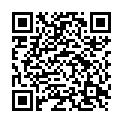|
|
|
| Module code: BSP-2 |
|
|
2V+1U+2PS (5 hours per week) |
|
8 |
| Semester: 1 |
| Mandatory course: yes |
Language of instruction:
German |
Assessment:
BSP-2.1: Written exam (K) (bn)
BSP-2.2: /
BSP-2.3: /
[updated 20.05.2020]
|
BSP-2 (P322-0022) Social work and early childhood, Bachelor, ASPO 01.10.2017
, semester 1, mandatory course
BSP-2 (P322-0022) Social work and early childhood, Bachelor, ASPO 01.10.2019
, semester 1, mandatory course
|
75 class hours (= 56.25 clock hours) over a 15-week period.
The total student study time is 240 hours (equivalent to 8 ECTS credits).
There are therefore 183.75 hours available for class preparation and follow-up work and exam preparation.
|
Recommended prerequisites (modules):
None.
|
Recommended as prerequisite for:
|
Module coordinator:
Prof. Dr. Ulrike Zöller |
Lecturer:
Prof. Dr. Ulrike Zöller
Moritz Czarny, M.A.
Sigrid Selzer, M.A.
[updated 22.08.2019]
|
Learning outcomes:
BSP-2.1 and BSP 2.2
After successfully completing this course, students will be able to provide information about the historical development that led from social work and social pedagogy to the discipline and profession of social work.
They will be able to name historical representatives from the fields of social work and childhood education and be familiar with the ideas associated with them.
Students will have an overview of historical and current models from the fields of social work and childhood education.
They will be able to transfer relevant models to current fields of social work and childhood education.
BSP-2.3
Students will have insight into the logic and heterogeneity of the research, practice and fields of social work and childhood education and be able to identify their main possibilities and problems.
[updated 20.05.2020]
|
Module content:
BSP-2.1:
"Social work" and "childhood education" are modern generic terms for complex connections within science and society. "Social work", like "childhood education", refers to specific areas of theory and practice within the tradition of scientific thought and action. As disciplines, childhood education and social work are part of the educational and social sciences (just as medicine is a part of natural science); of course, other reference or auxiliary sciences (e.g. ethics, politics, psychology, pediatrics) are also relevant.
As a profession, both are part of a rational practice in a democratic society and, like all professions, both rely on theoretical justifications and to case-oriented actions. The development of social work, for example, has its origins in the spirit of caring for the poor in response to the crisis of poverty or other emergencies, in social pedagogy the response was to educational and educational crises, and in childhood pedagogy the driving force was advocacy for children, in order to help promote their autonomy and understand, protect and develop them as players in a generational order. This requires, for example, insight into a child´s need for upbringing and visualization (Kant) and clarity about the "Entwicklungstatsache" (Bernfeld). Students will learn about how social work and childhood education developed, the logic of human development and selected research topics and fields of practice.
BSP-2.2:
With reference to the lecture, central topics pertaining to social work and childhood education will be examined in depth. Thus, students´ basic understanding of the respective topics is deepened by way of methodically guided steps. The goal is to gain an initial overview - laid down by the lecture - of the practical fields, theoretical traditions and research perspectives.
BSP-2.3:
Introduction to the different fields of social work and childhood education. Students will receive an overview of the fields of social work and childhood education and their organizational frameworks. Representatives from professional practice will be invited and present their respective fields of work within the institutional structure, discuss relevant legal foundations, methodological approaches, addressees and key conflicts of practical action. Individual fields of work will be examined in more detail within the framework of workshops. The course culminates in a job fair event where institutes from the fields of social work and childhood education, professional associations and international contacts from the faculty will introduce themselves and their offers to the students.
[updated 20.05.2020]
|
Teaching methods/Media:
BSP-2.1:
- Lecture
- Independent study: reading and processing scientific literature
BSP-2.2:
- Exercises within the framework of the seminar
- Independent study: reading and processing scientific literature
- Discussions about basic concepts and models in small groups and with the whole class
- Short presentations within the framework of the seminar
BSP-2.3:
- Tutorial with workshops
- Job fair event
- Independent study: reading and processing scientific literature
[updated 20.05.2020]
|
Recommended or required reading:
BSP-2.1:
will be announced in the lecture plan
BSP-2.2:
based on the lecture plan.
[updated 20.05.2020]
|


